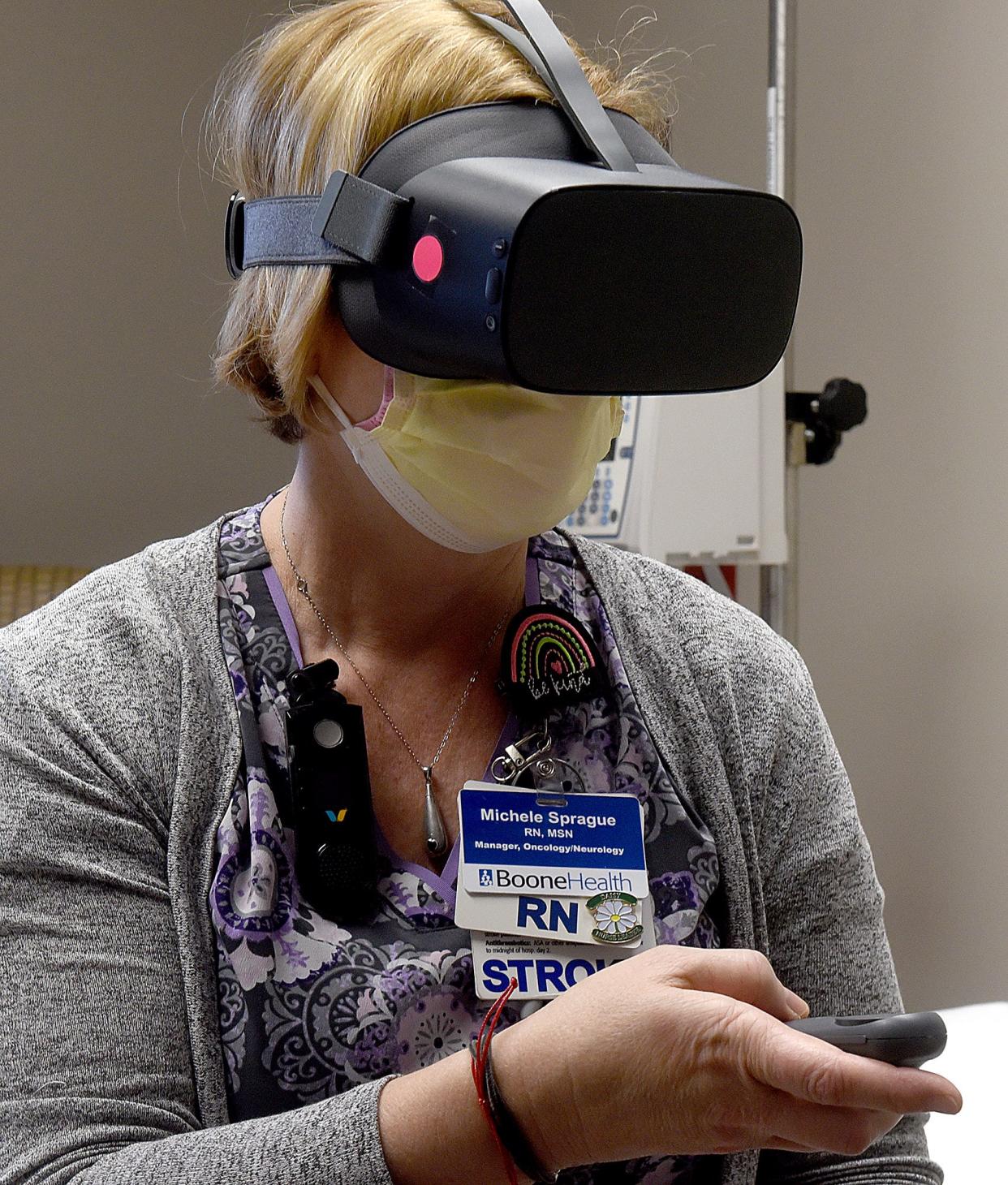Virtual reality takes Boone Health workers from hospital to the beach, improves stress levels

One moment, Michele Sprague is tending to the non-stop demands of her job as a nurse manager at Boone Health.
The next, she's on a beach in New Zealand.
It's part of a project with Columbia-based company Healium to assess the impact of mind-powered virtual reality and neurofeedback to improve mood and reduce stress among front-line health care workers.
"It is pretty incredible," Sprague said. "You absolutely feel like you're walking on the beach."
One hundred Boone Health employees were subjects in a study about the project published in Frontiers in Virtual Reality Medicine.
The employees, who participated voluntarily, were fitted with a brain-sensing head strap and virtual reality goggles to record their brain patterns associated with stress. They were then placed inside an environment through virtual reality that responds to the user's biometric information, modifying the scene if the brain becomes stressed.
Healium's patented technology tailors stress-relieving immersive media content specific to the wearer based on their brain patterns measured by electroencephalogram, a test or record of brain activity.
More: Columbia hospitals shuffle to combat 'very dramatic strain' from rise in COVID-19 hospitalizations
Participants were virtually sent to a beach in New Zealand for just over four minutes, said Healium CEO Sarah Hill. A narrated, guided meditation led them through breathing exercises with focus on different parts of the body.
After the short session, employees were recorded as having improved moods, increased feelings of happiness and calm, and reduced tension.
"We need to find drugless, non-harmful coping mechanisms," Hill said of the importance of the technology. "It is a powerful tool to be able to see your brain patterns and learn to self-regulate. It's all just a reminder that our thoughts do have power to control things not only in the virtual world, but in the real world as well."
When immersed in the "virtual vacations," participants monitor their own brain activity with the use of a firefly that changes in size depending on the activity, she said.
The firefly goes toward the top of the screen and grows larger when the participant is showing signs of decreased stress.
When the firefly gets smaller and drops to the bottom, the screen is tinted red, signaling an increase in stress. It acts as a gentle reminder for the participant to shift focus back to their breathing and the scene.
More: Hospital staffing strain in Columbia worst since start of COVID-19 pandemic, officials say
Before each session for the study, participants filled out a survey of their mood and were asked to fill out the same survey at the conclusion of the experience. Participants, a majority of whom are nurses, reported back feeling much calmer, describing the experience as "lovely" and "truly relaxing," Hill said.
There were noticeable changes in staff members after using the device, including a decrease in anger, depression and overall stress, Sprague said.
The virtual reality kits were donated to Boone Health for workers to continue to utilize.
Now, they are free to use any of 35 experiences, which include waterfalls, forests, space and up in the clouds, with sessions of up to 20 minutes.
The headsets are rotated each week between wards in the hospital for employees to utilize, Sprague said.
This article originally appeared on Columbia Daily Tribune: Boone Health workers use virtual reality to improve stress levels

